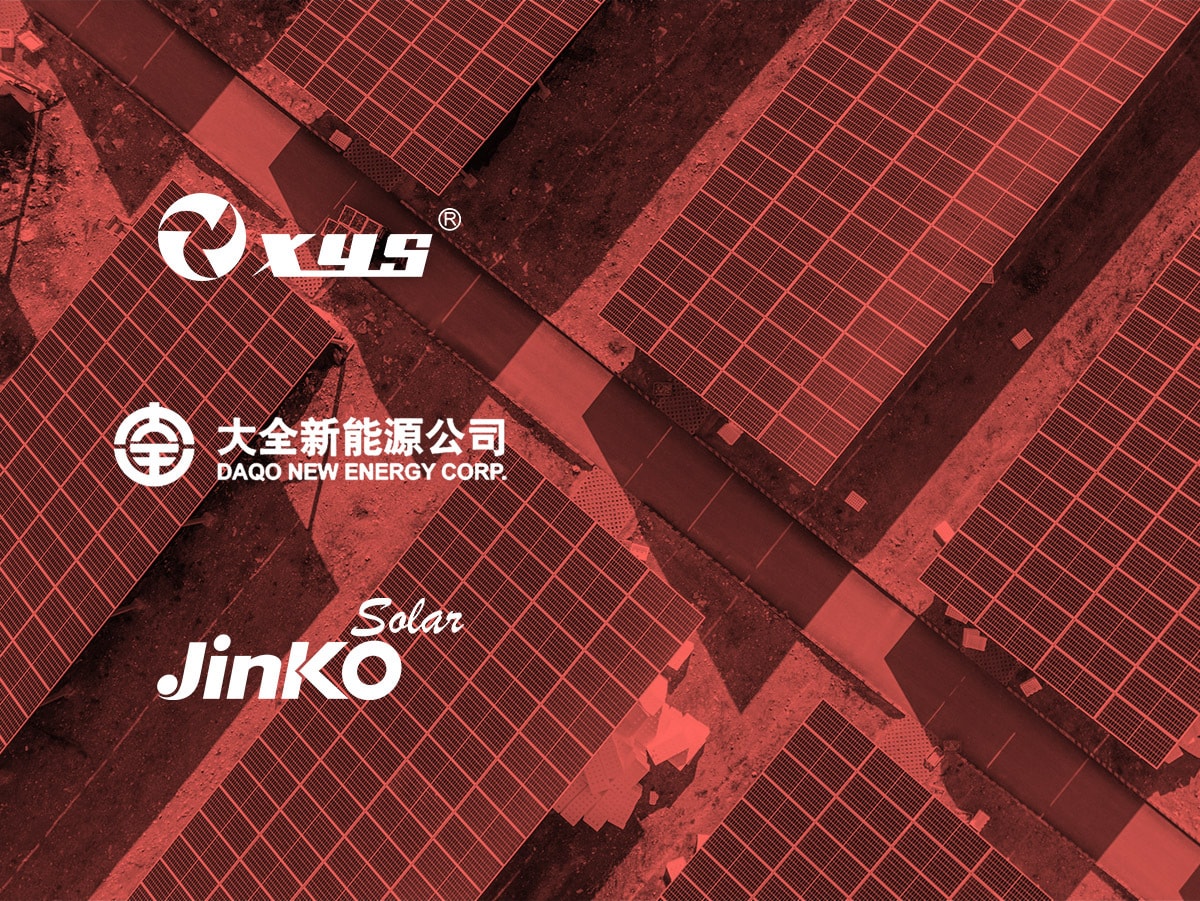Solar stocks in China such as Daqo New Energy and Jinko Solar have seen their share prices gain so far in 2022. While shares in Xinyi Solar are down in the year-to-date, all three companies are benefitting from strong demand in the solar PV market.
Despite China dominating the solar industry, accounting for around 80% of the manufacturing involved in the photovoltaic (PV) panel production process, stocks such as Daqo New Energy [DQ], JinkoSolar [JKS] and Xinyi Solar [0968.HK] have had mixed performances so far in 2022.
China’s leading market share of the industry is a cause for concern, according to the International Energy Agency (IEA). In a July release, IEA executive director Fatih Birol said: “China has been instrumental in bringing down costs worldwide for solar PV, with multiple benefits for clean energy transitions”, but warned that overreliance on the country could impact net zero ambitions.
One reason China has dominated is its production costs are much lower compared to Europe and the US. This isn’t solely due to cheaper labour costs, but also its preference for large-scale manufacturing, which brings with it enormous supply-chain benefits.
Daqo New Energy sees reduced sales in Q2
Daqo New Energy reported revenue of $1.24bn and adjusted earnings of $8.18 per share for the three months to the end of June. Though this comfortably beat analysts’ expectation of earnings of $6.39 per share on $1.3bn, revenue was down marginally year-over-year. Net income soared 170% year-over-year from Q2 2021’s $232m to $628m, and increased 17.2% from Q1 2022’s net income of $535.8m.
Longgen Zhang, CEO of Daqo, explained in a statement that the revenue decrease was due to slightly lower sales volumes. However, this was offset by an incremental increase in the average selling price per kg of polysilicon (used in the PV supply chain).
“With growing global policy support and attractive economics, we are confident that solar PV market demand and prices will remain strong, providing sustainable and healthy profits to the solar manufacturing value chain,” Zhang said.
The solar equipment provider announced back in June that it was repurchasing $120bn worth of stock. Daqo New Energy’s share price has ballooned more than 75.3% since the start of the year and has more than doubled from its 52-week low of $32.20, set during trading on 15 March, to $70.71 on 10 August.
JinkoSolar plugs into valuation gap
Demand for solar in the US is hot, but it’s even hotter in China and this is perhaps best reflected in the valuation gap between JinkoSolar’s NYSE-listed shares and its Shanghai-listed shares, which trades as Jiangxi Jinko [688223.SS].
As of 9 August, the former was trading at 37.56 times its trailing 12-month earnings, while the latter was trading at 110.33 times its trailing 12-month earnings.
JinkoSolar has decided to make hay while the sun is shining and announced its intention to raise RMB10bn ($1.48bn) by issuing convertible bonds through its China unit. The proceeds will be used towards the construction and development of certain solar cell and module production projects.
The JinkoSolar share price is down 9.6% in the past month, and up 48.5% year-to-date (through 10 August).
Xinyi Solar eyeing mainland China listing
The solar glass manufacturer reported a 38% decline in profits for the first six months of the year to HK$1.9bn, despite revenue increasing by a little over 20% to HK$9.697bn. Management attributed this to a combination of increasing raw material costs and lower selling prices.
“Slower-than-expected ramp-up of the new capacity and the strong demand have kept polysilicon prices high… The tight supply chain situation is expected to gradually improve in the second half of 2022 and 2023,” it stated.
The Xinyi Solar share price is up 0.6% in the last month but down 9.6% since the start of 2022. The Hong Kong-listed stock closed on 10 August at HK$12.04, roughly 11.1% above its 52-week low of HK$10.84 set on 25 April and roughly 37.8% below its 52-week high of HK$19.36, set during intraday trading on 1 September last year.
The company has tentatively announced its intentions for a listing on the mainland China market, which should boost the share price. Bocom International analyst Bob Wen wrote in a note seen by MarketWatch that “an A-share listing will greatly enhance [Xinyi Solar's] equity financing capabilities, and benefit its long-term development”.
Disclaimer Past performance is not a reliable indicator of future results.
CMC Markets is an execution-only service provider. The material (whether or not it states any opinions) is for general information purposes only, and does not take into account your personal circumstances or objectives. Nothing in this material is (or should be considered to be) financial, investment or other advice on which reliance should be placed. No opinion given in the material constitutes a recommendation by CMC Markets or the author that any particular investment, security, transaction or investment strategy is suitable for any specific person.
The material has not been prepared in accordance with legal requirements designed to promote the independence of investment research. Although we are not specifically prevented from dealing before providing this material, we do not seek to take advantage of the material prior to its dissemination.
CMC Markets does not endorse or offer opinion on the trading strategies used by the author. Their trading strategies do not guarantee any return and CMC Markets shall not be held responsible for any loss that you may incur, either directly or indirectly, arising from any investment based on any information contained herein.
*Tax treatment depends on individual circumstances and can change or may differ in a jurisdiction other than the UK.
Continue reading for FREE
- Includes free newsletter updates, unsubscribe anytime. Privacy policy





